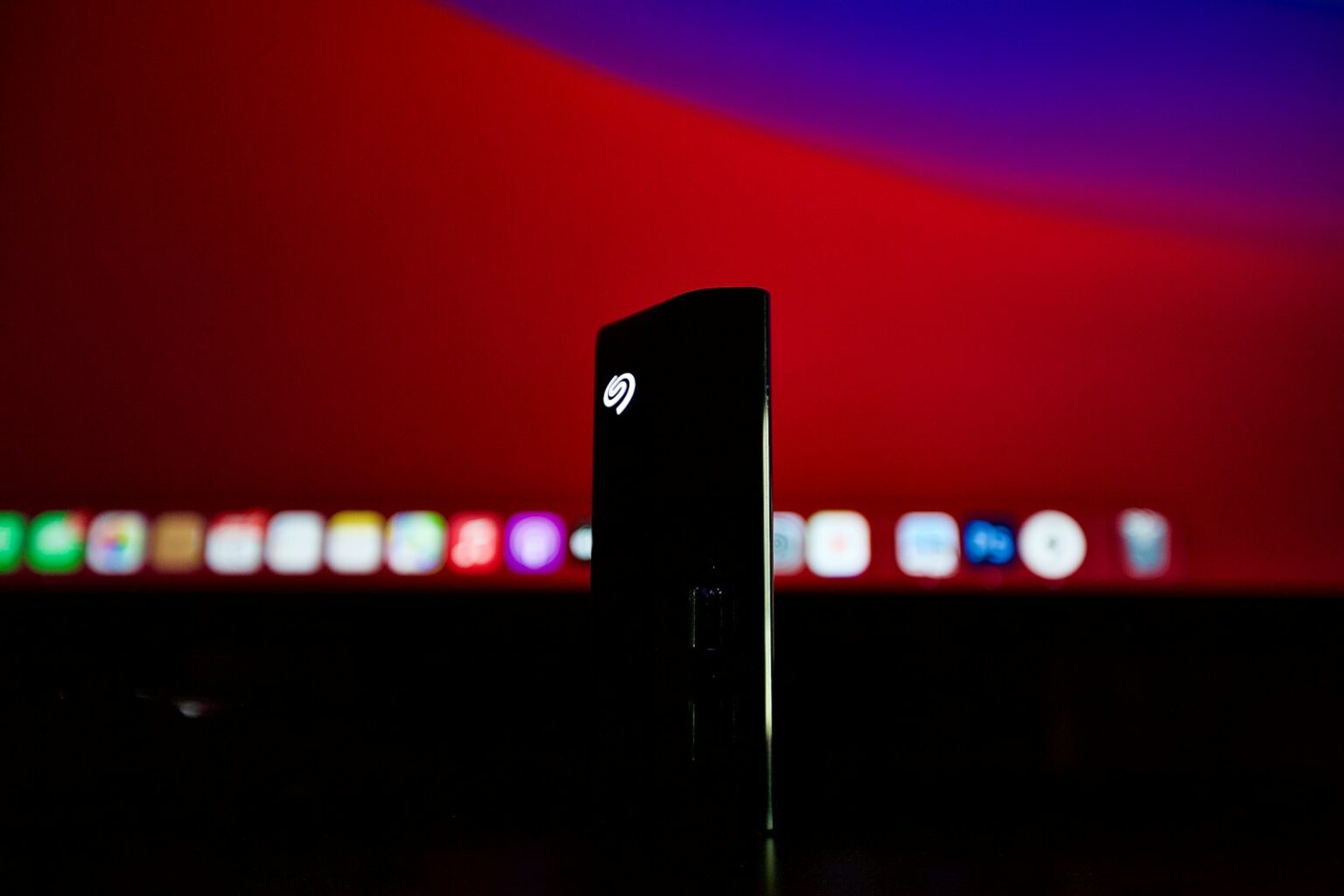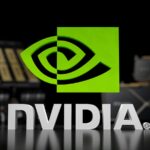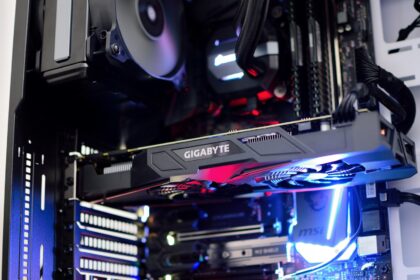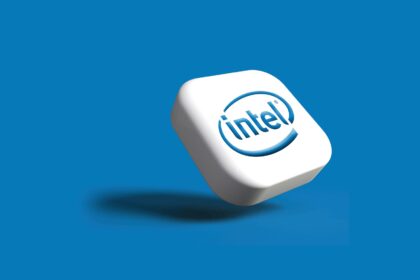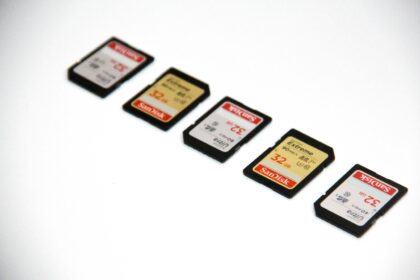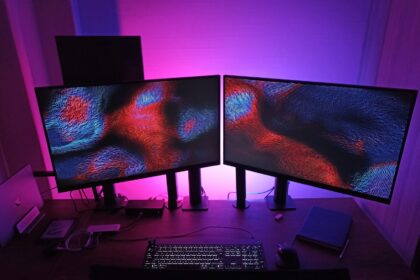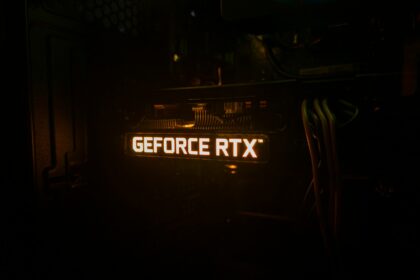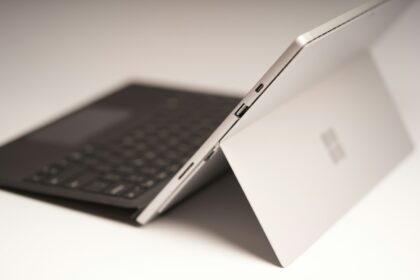Storage deals don’t get much better than this. Seagate’s BarraCuda 24TB hard drive has dropped to its lowest price ever at just $239 on Newegg. That works out to roughly one cent per gigabyte – an incredible value for anyone needing massive amounts of storage space.
The numbers that matter most
At $239 for 24TB of storage, this drive offers exceptional value compared to other storage options. To put this in perspective, a similar 4TB M.2 SSD costs around the same price. That means you’re getting six times more storage capacity with the Seagate hard drive for the same money.
The drive operates at 7,200 RPM with transfer speeds up to 190 MB/s. While this isn’t blazing fast by SSD standards, it’s perfectly adequate for bulk storage, media libraries, and backup purposes. The 512MB cache helps improve performance during data transfers and access operations.
“With 7200 RPM speeds, this is a capacity-over-performance play, but a huge HDD like this is a great solution for those who just want to get as much storage as possible without paying a premium”, notes Tom’s Hardware in their coverage of the deal.
Why this drive stands out from cheaper options
The BarraCuda 24TB uses Conventional Magnetic Recording (CMR) technology instead of Shingled Magnetic Recording (SMR) found in many budget drives. This makes a significant difference in real-world performance and reliability.
CMR drives write data in parallel, non-overlapping tracks with small gaps between them. This allows for faster write speeds and better overall performance compared to SMR drives. You can modify existing data without affecting neighboring tracks, making CMR ideal for applications that frequently rewrite files.
SMR drives overlap their data tracks like roof shingles to increase capacity. While this provides more storage in the same physical space, it creates performance penalties. When you need to modify data on an SMR drive, it must rewrite entire sections, leading to slower performance and increased wear.
The cost revolution in storage pricing
The price of one cent per gigabyte represents a historic milestone in storage costs. According to industry data from Backblaze, hard drive costs have dropped dramatically over the past decade. In 2009, storage cost around $0.114 per gigabyte. By 2022, that figure had fallen to just $0.014 per gigabyte.
The Seagate BarraCuda 24TB deal pushes that cost even lower. This pricing makes it possible to build massive personal archives, media servers, and backup systems without breaking the bank. For content creators, photographers, and anyone dealing with large files, this represents incredible value.
Current SSD pricing ranges from $0.08 to $0.10 per gigabyte, while HDDs like this Seagate model cost just $0.03 to $0.06 per gigabyte under normal circumstances. This particular deal drops the cost below even typical HDD pricing.
Performance specifications and real-world use
The BarraCuda 24TB is designed for desktop computers and external enclosures rather than enterprise server environments. It features a 120TB per year workload rating, which means it can handle significant usage without problems. However, it’s not meant for 24/7 operation like enterprise drives.
The drive includes 2,400 power-on hours per year in its specifications, indicating it’s designed for typical desktop usage patterns. For most users storing media files, documents, games, and backups, this capacity is more than adequate.
Power consumption is reasonable at 8.9 watts during operation and 6.7 watts when idle. The drive weighs 695 grams and measures 147 x 101.85 x 26.1mm, fitting standard 3.5-inch drive bays in desktop computers and external enclosures.
How hard drives remain competitive in 2025
Despite predictions that SSDs would completely replace hard drives, HDDs continue thriving in specific market segments. The global hard disk drive market is projected to grow from $66.6 billion in 2025 to $111.2 billion by 2035, representing a 5.3% annual growth rate.
This growth comes primarily from enterprise data centers, cloud storage providers, and consumers who need large amounts of affordable storage. Major companies like Amazon Web Services, Microsoft Azure, and Google Cloud continue expanding their HDD capacity for backup, archival, and cold storage applications.
AI development has actually increased demand for traditional hard drives. Training artificial intelligence models requires storing massive datasets that don’t need frequent access. HDDs provide the perfect solution for this “nearline” storage – data that isn’t accessed constantly but must remain readily available.
The competition and market landscape
Seagate competes primarily with Western Digital and Toshiba in the consumer hard drive market. Current market share shows Seagate holding about 41% of the market, Western Digital with 42%, and Toshiba capturing approximately 17%.
Recent financial results show strong performance across the HDD industry. Total HDD shipments increased 6% in the second quarter of 2025, with exabytes shipped rising 12.6%. Industry revenues reached $6.2 billion, representing 17.4% growth from the previous quarter.
Average selling prices for HDDs have increased 8.4% recently, now sitting about 17% higher than levels seen in 1998. This pricing trend is driven by demand for high-capacity drives and the shift toward more sophisticated, expensive models.
Who should buy this drive
This deal makes sense for several specific user groups. Content creators working with 4K video files need massive amounts of storage for raw footage, project files, and final renders. A single hour of 4K video can consume 400GB or more of space.
Home media enthusiasts building Plex servers or personal streaming libraries will find 24TB provides room for thousands of movies and TV episodes. The CMR technology ensures smooth streaming performance without the stuttering issues sometimes seen with SMR drives.
Photographers dealing with RAW files from high-resolution cameras need substantial storage capacity. Modern cameras can produce 50-100MB files per image. A 24TB drive can store roughly 240,000 to 480,000 photos, depending on file sizes.
Small business owners and professionals requiring reliable backup solutions will appreciate the combination of capacity and affordability. This drive can serve as a backup destination for multiple computers and servers.
Technical limitations to consider
While this drive offers exceptional value, it’s not suitable for every application. Gamers looking for fast loading times should stick with SSDs for their game installations. The difference in loading speeds between HDDs and SSDs remains substantial for interactive applications.
The drive’s 7,200 RPM speed is respectable for an HDD, but still far slower than even budget SSDs. Sequential read speeds of 190 MB/s compare unfavorably to SSD speeds that often exceed 1,000 MB/s. Random access performance is particularly poor compared to solid-state storage.
Boot drives should almost always be SSDs in 2025. Windows startup times, application launches, and general system responsiveness suffer significantly when using HDDs as primary drives. This Seagate drive works best as secondary storage for data that doesn’t require frequent access.
Installation and compatibility considerations
The BarraCuda 24TB uses standard SATA connections, ensuring compatibility with virtually any desktop computer or external enclosure. The drive requires both SATA data and power connections, which are standard on modern motherboards and power supplies.
Some older computers may have BIOS limitations that prevent recognition of drives larger than 2TB. Most systems built after 2010 support large drives without issues, but users with very old computers should verify compatibility.
External enclosure users should ensure their chosen enclosure supports the drive’s power requirements and heat dissipation needs. A 24TB drive generates more heat than smaller models and needs adequate ventilation to maintain proper operating temperatures.
The warranty and support situation
Seagate provides a two-year limited warranty on the BarraCuda 24TB model. This is shorter than the five-year warranties offered on enterprise drives, but reasonable for consumer-oriented storage. The warranty covers manufacturing defects but not data recovery services.
Seagate’s support includes online resources, diagnostic tools, and phone support during business hours. The company’s DiscWizard software helps with drive cloning and migration tasks when upgrading storage systems.
Users should implement proper backup strategies regardless of warranty coverage. While modern hard drives are generally reliable, all storage devices can fail unexpectedly. The 2-year warranty provides some protection, but critical data should always exist in multiple locations.
Why this deal won’t last long
Storage deals at this price point typically disappear quickly due to limited inventory and high demand. Newegg’s pricing appears to be a promotional offer rather than a permanent price reduction. Historical pricing shows this drive normally sells for $299 or higher.
The combination of increasing demand for bulk storage and recent supply chain pressures has actually pushed HDD prices higher in many categories. This deal runs counter to broader market trends, making it particularly valuable for buyers who can act quickly.
Industry analysts predict continued strong demand for high-capacity HDDs throughout 2025 and beyond. Prices may continue rising as cloud providers and enterprise customers compete for limited manufacturing capacity.


